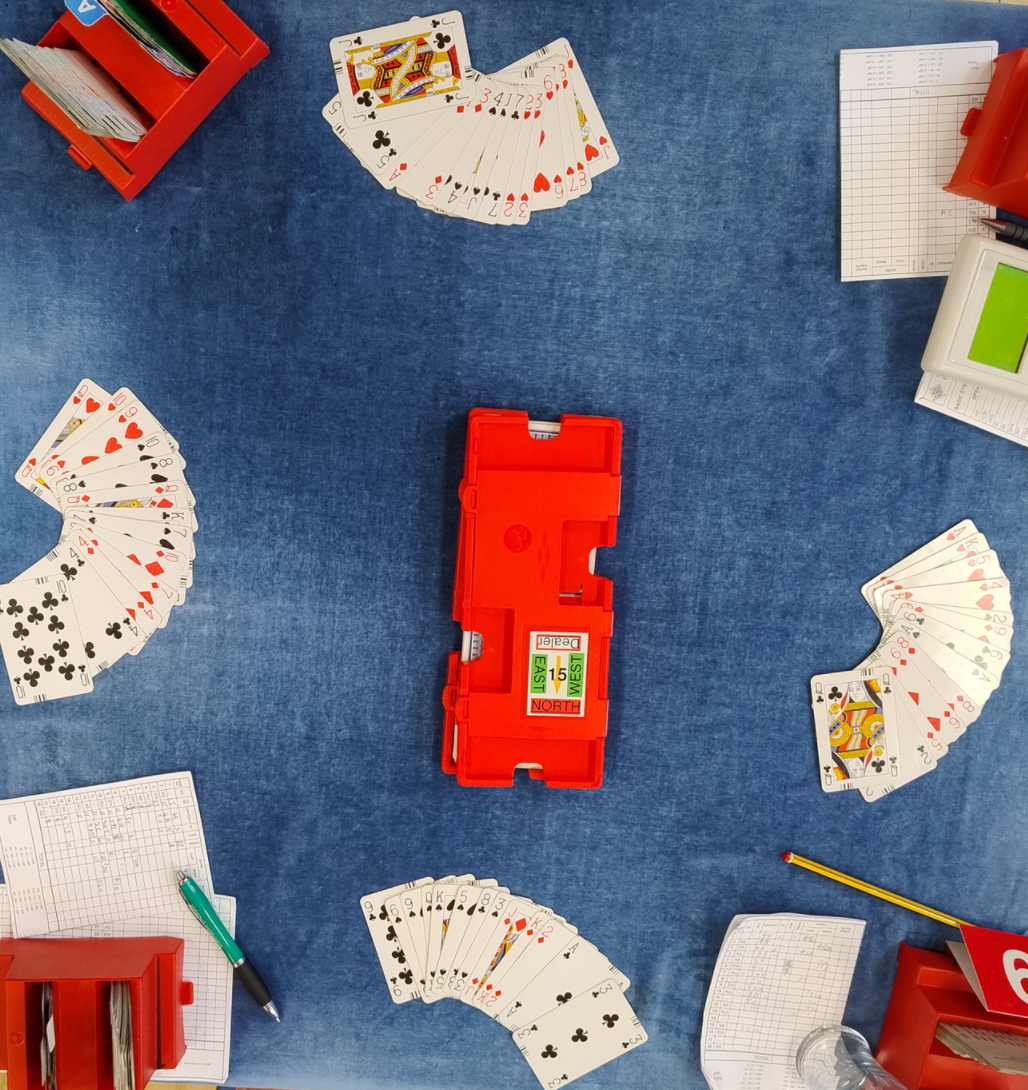On when we make a determination of rectification.
This is a bit "angels on a pinhead", but it arises out of a real situation.
I get called to the table. The play is at trick 8.
Declarer says one of the opponents has probably revoked at some earlier point.
I can send them all away from the table, turn over the quitted tricks, take several minutes determining if there was a revoke, and determining the trick adjustment if there is one.
Or I can tell them to wait until the end and then they can check and call me if they discover a revoke. Much easier for me (and them).
But: Declarer says that knowing the existence of a trick adjustment will affect the way he plays the rest of the hand, and wants to know now. This seems perfectly reasonable to me.
There is nothing in the law book that I can find that says when I must make my determination. Equity doesn't necessarily help as it will look at what would have happened had the revoke had not happened, and declarer is entitled to take advantage of the infraction.
Over to you, hive mind.

Comments
Law 66 on inspection of quitted tricks covers this I think, there's no de facto right for the players to inspect quitted tricks, and 66D even specifically references "after the hand... to settle a claim of a revoke".
This actually suggests that even if they say there was a revoke you shouldn't confirm or deny so long as its been established, but there's some room for pragmatism there I think.
Assuming that defenders do not agree a revoke or maybe even don't know if they have revoked. Also assuming declarer can't say which defender revoked or in which suit. What we have is a situation where declarer could/may have lost count on a suit. So if you review what has happened and confirm/deny a revoke then they now have confirmation of their card count either being correct or incorrect (extraneous information).
If there has been a revoke earlier then Law 63 allows for a trick or tricks adjustment and if damage has been greater then Law 63 C (i) allows the director to consider redress of damage.
Therefore in these situations I think it is better to tell them to continue play and that after play has finished the players leave all the quitted cards as they are and the director places the cards in the board and takes it away to determine if there had been a revoke and whether additional damage has been done.
Obviously this is ok with a non-playing director with surplus boards (and time!). But again I think that maybe for a playing director it is just as well to get the hand played and the players to each give a list of the order of their 13 cards. Then a judgement can be made after the event and an amendment made or the result left to stand.
As usual I could be wrong but most revokes (for me) come to light after a ruff and then the offender leading the suit ruffed!!
How many pinheads do you have Jeremy?
What I do is turn the quitted tricks over (at the end) and then take a photo, like this:

Much easier and it puts the board back into circulation immediately.
Enough to fit on an Angel!
I do find these "extreme" cases do help clarify exactly how the law works. Plus it's fun!
You have a camera? How long to get the film developed? Or is it a Poleroid instamatic? How many chairs did you stand on to get the photo?
I still think you should get them to write out the hands, hey ho!
Agreed and. agreed
An Angel just slipped off the pin head!
If a playing club director has to take a photo then if they haven't played the board they should probably do a 50%/60% or even 40%/60% for the board.
Pen and paper everybody!
More or less what the White Book says
I am perfectly capable of seeing all the hands and not remembering a thing about them.
I can't even remember the bidding during the play!
Yes,i can understand that, but what about when you are the director?
I could invoke 16D2C and say that on the basis of not remembering anything the score can stand, but whilst possibly within the letter of the law it's not a good look.
In reality the only time I play and direct is in supervised play sessions, where all the UI rules are treated as suggestions at best. For example I often look at an opponent's hand in order to suggest the best call for them to make. Technically not bridge, but a good way to get better at it.
How about asking one of the players at the table to take a photograph. Preferably with your Smartphone.
Also, hasn't camera film gone the same way as floppy discs and VHS tapes?
Hi Black Topaz
the film bit was TIC.
Apart from the photo the additional problem is turning the cards over so that they are in view and in the order played. There are some people at the club I wouldn't trust to count the winners, never mind be able to take a picture with a smartphone.
ROFL!